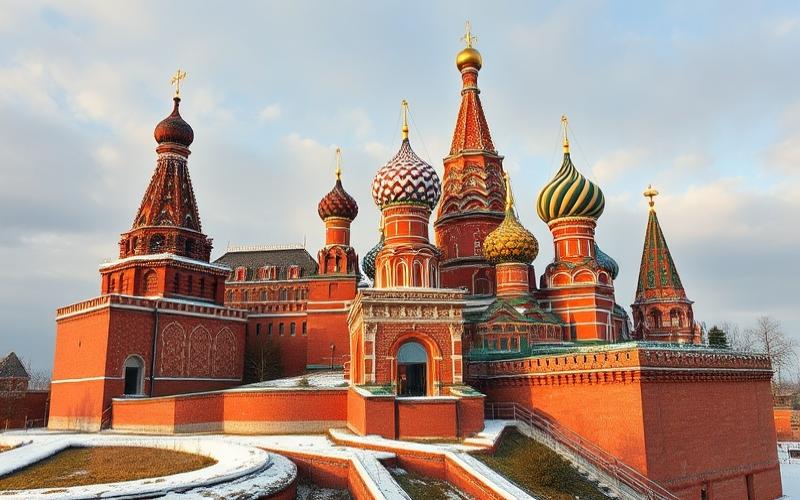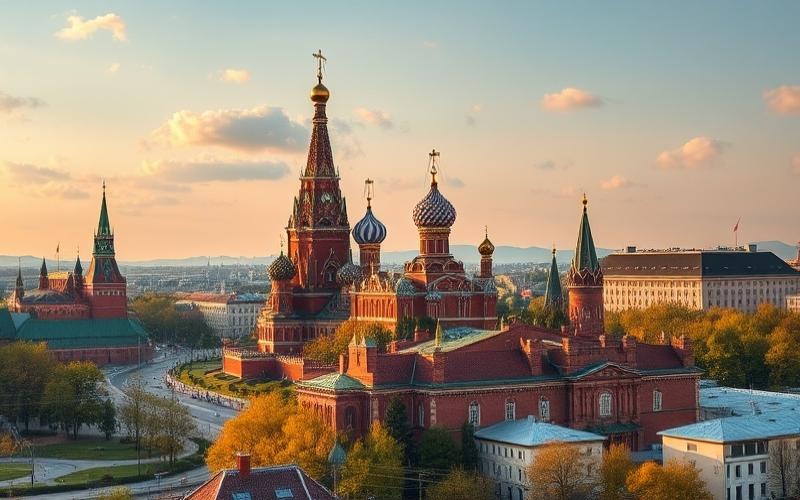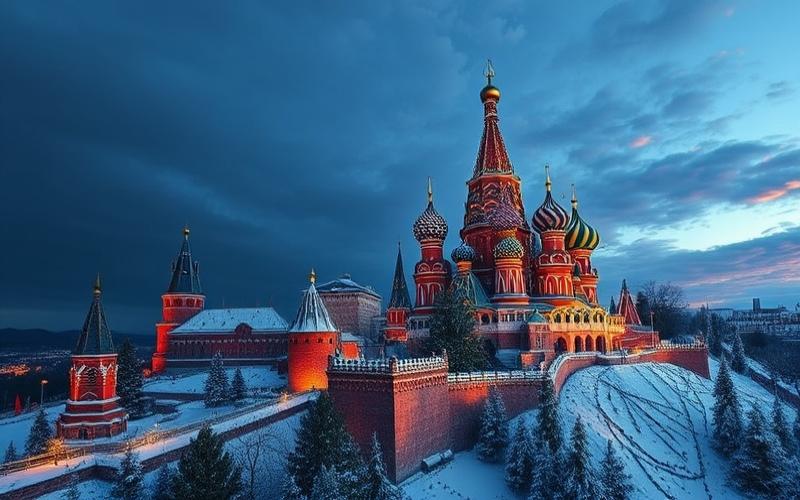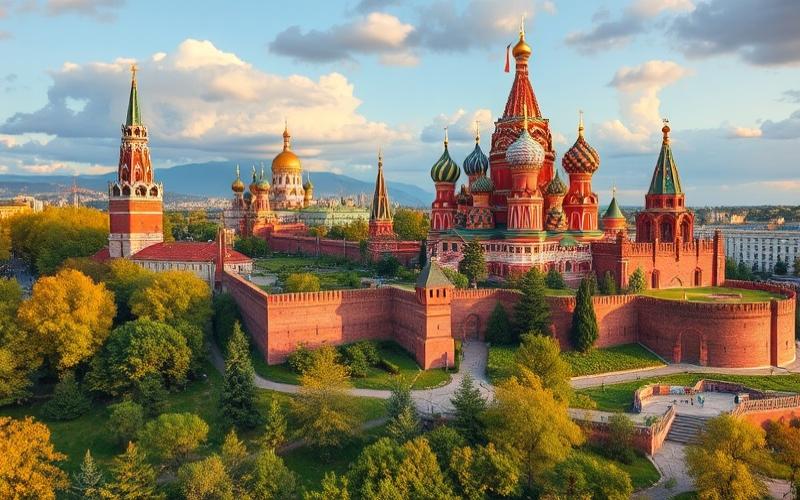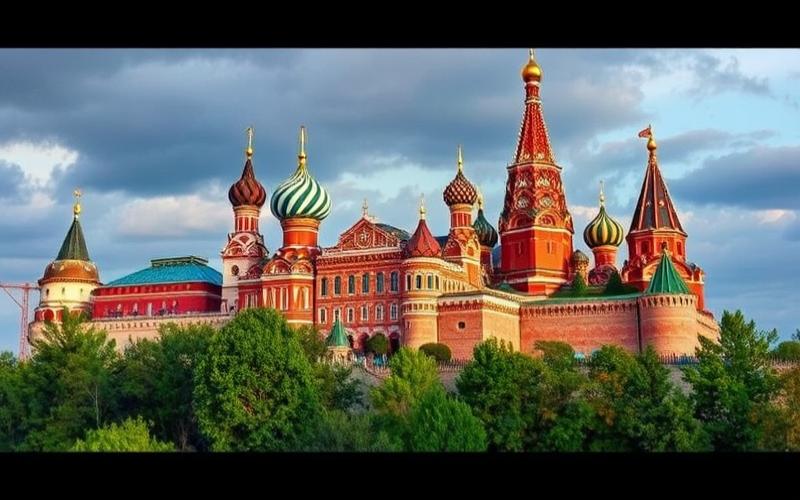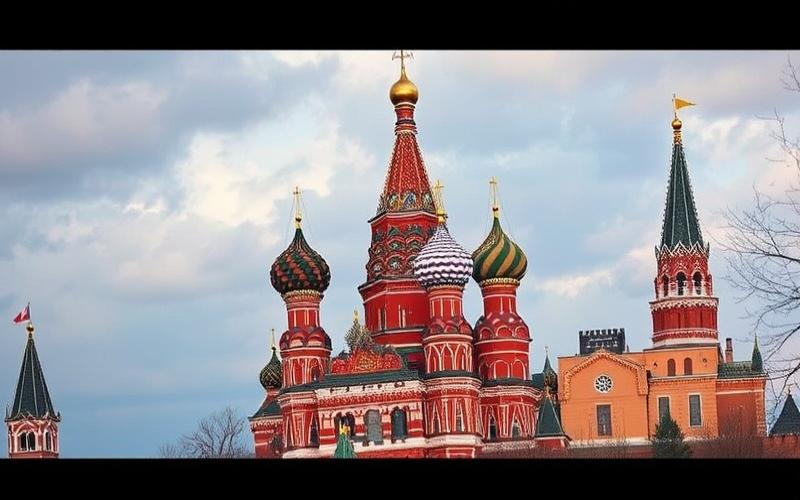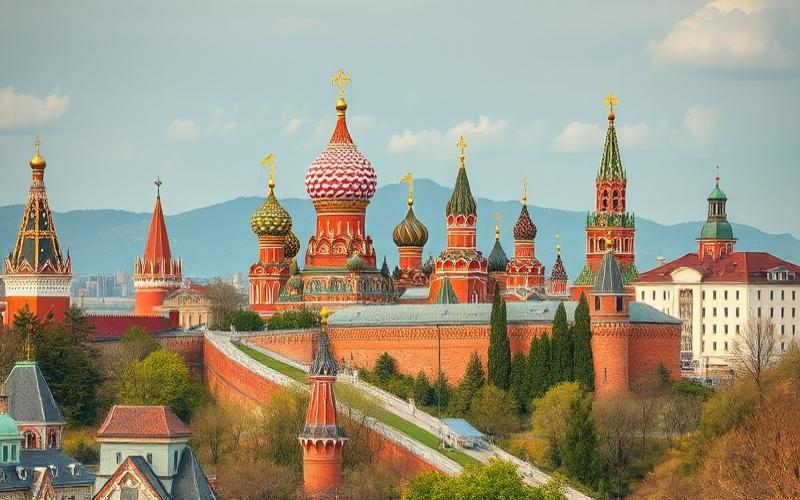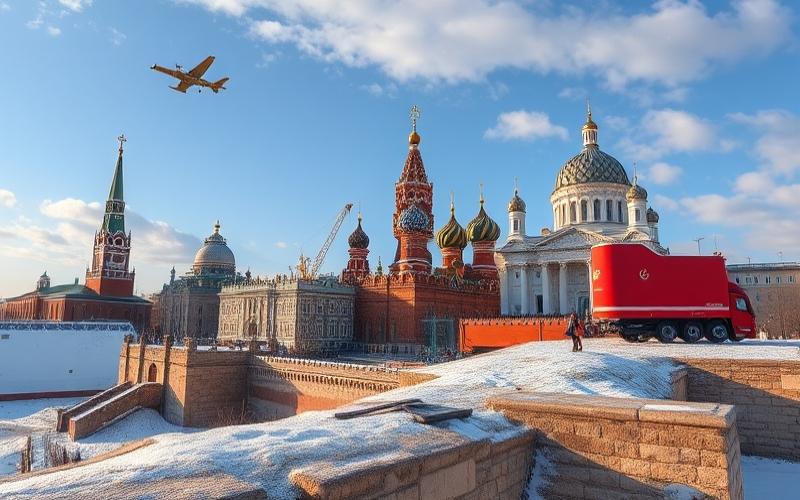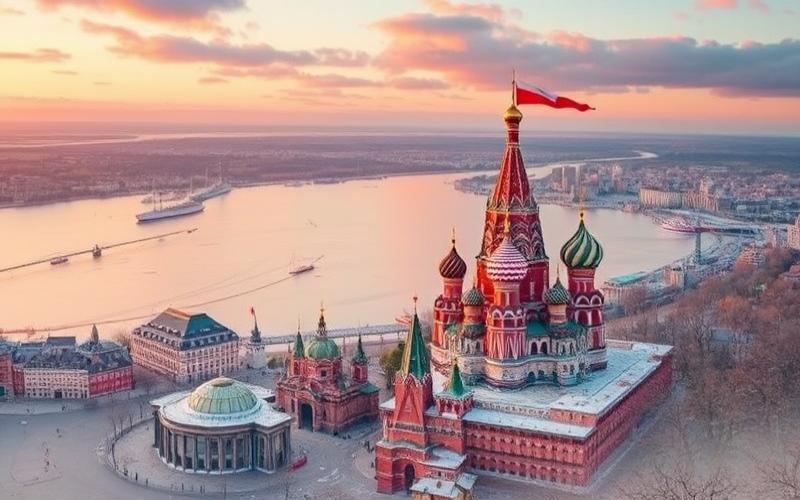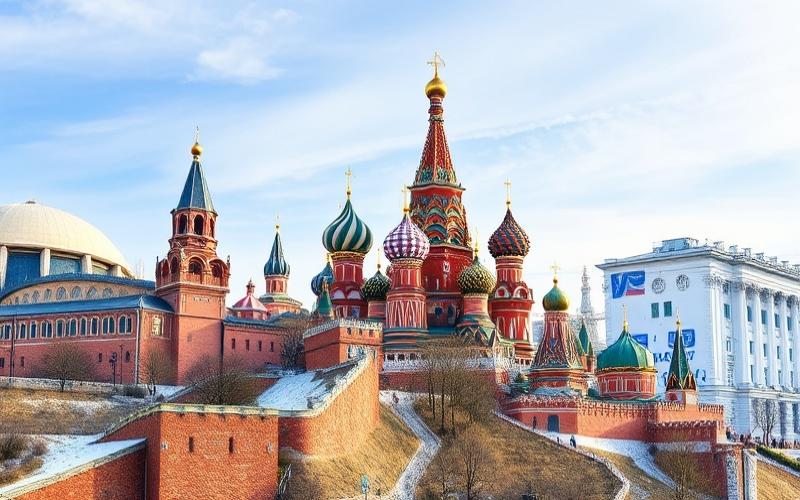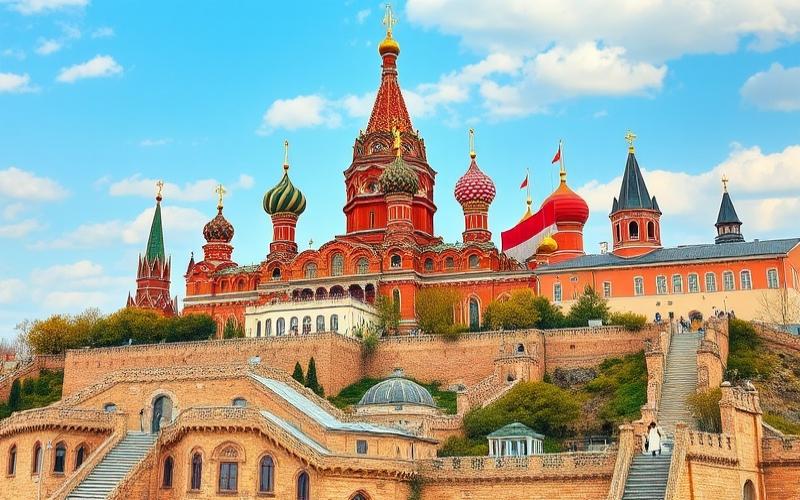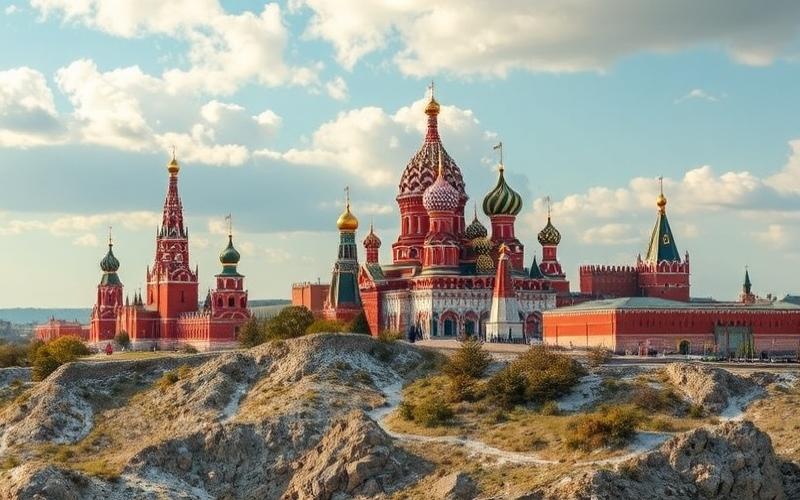
 Published on and written by Cyril Jarnias
Published on and written by Cyril Jarnias
Russia’s real estate market, vast and dynamic, is a constantly evolving sector that is attracting growing interest from international investors and Russian citizens alike. Understanding the specifics of real estate contracts and the available guarantees is essential to successfully navigate this complex market.
Faced with a changing legal environment, where legislation can present notable particularities, professionals and individuals wishing to acquire or sell real estate must pay close attention to the key elements that characterize Russian contracts.
From signing a preliminary contract to formalizing the transaction, including the multiple guarantees offered, this article guides the reader through the legal and practical subtleties of Russian real estate law, providing an in-depth overview of the opportunities and challenges this sector presents.
Real Estate Law in Russia: An Overview of Laws and Regulations
Main Laws Governing Real Estate Transactions in Russia:
- Civil Code of the Russian Federation: It governs the conclusion of contracts, notably Articles 432 (essential terms of the contract), 554 (precise identification of the property), and 555 (price). Any contract must imperatively mention the object with detailed identification data and the agreed-upon price.
- Land Code of the Russian Federation: It defines the legal regime of lands, their ownership, use, transfer, and protection. The sale of agricultural land has been explicitly permitted since 2003.
- Law on State Registration of Real Estate: It requires that all transfers or modifications concerning a real estate property be registered with the competent public registry.
| Law / Regulation | Main Content |
|---|---|
| Civil Code | Real estate contracts, essential terms (object, price), required forms |
| Land Code | Legal status of the soil, property rights on the land |
| Registration Law | Mandatory registration procedure for any transaction affecting a real property right |
Registration Procedures:
Any transaction concerning a real estate property must be formalized in writing; otherwise, it is void.
The signed deed is submitted to the competent federal body for registration. Entry in the public registry confers enforceability against third parties and legal security to the transaction.
Required documents include prior titles of ownership, detailed cadastral/technical plans, as well as any prior agreement required by the corporate bylaws if a legal entity is selling.
Obligations When Concluding the Real Estate Contract:
Agreement on all material terms (object precisely identified via official technical documents; price).
Obligation for the seller to provide all relevant information allowing for the certain identification of the property being transferred.
In case of non-performance or undisclosed hidden defect: contractual/practical possibility to apply a penalty clause or statutory interest according to rates set by the Russian Central Bank.
Legal Guarantees Offered to the Parties:
For the Buyer:
Right to reimbursement according to the rules relating to “unjust enrichment” if the contract were to be invalidated retroactively. However, effectively recovering these sums can prove complex in certain practical cases.
For the Seller:
Protection against abusive termination except for proven serious breach before a competent court.
General Guarantees:
| Party | Main Guarantee |
|---|---|
| Buyer | Possible reimbursement in case of cancellation |
| Seller | Termination limited to major breaches |
Role of Notaries and Real Estate Agents:
Notaries:
Verify formal/essential compliance of the deeds
Can intervene in certain operations but are not mandatory for all types of transactions
Real Estate Agents:
Intermediaries between sellers/buyers
Often tasked with both finding buyers and preparing/filing administrative dossiers with the authorities
Recent Legislative Developments with Significant Impact:
Progressive liberalization of the land market since the early 2000s
Explicit introduction into the Federal/Land Code of the individual right to own/dispose of land freely, including agricultural land
Common Challenges Faced by Foreign Investors & Protective Measures:
Main List:
- Restrictions concerning direct acquisition by foreigners for certain strategic types/locations
- Administrative complexity related to verifying legal/cadastral history
- Relative risk regarding the validity of prior titles & limited recourse in practice
Protective Measures:
- Strict obligation of public registration protecting acquired rights after formal administrative control;
- Frequent contractual possibility to introduce penalty clauses/compensatory interest;
- Special devices sometimes provided locally facilitating foreign investments under particular conditions;
Key Takeaway
Buying or selling real estate in Russia involves a rigorous written procedure governed mainly by the Civil Code and mandatorily subject to entry in the public registry. Guarantees exist but require heightened vigilance during prior due diligence — particularly in an international context where certain restrictions may apply to foreign investors.
Good to Know:
Main laws like the Civil Code of the Russian Federation and the Law on State Registration strictly govern real estate transactions, often requiring the intervention of notaries for authentication, while foreign investors must be attentive to recent legislative developments to secure their investments.
Real Estate Purchase Contracts in Russia: Obligations and Rights
Main Obligations of the Parties
Seller:
- Provide a real estate property free of any encumbrance or claim.
- Guarantee the accuracy and legality of the documents provided (certificate of ownership, technical appraisal report).
- Deliver the property to the buyer according to the terms agreed in the contract.
- Obtain, if necessary, the spouse’s consent for the sale and provide translated and apostilled documents in case of marriage abroad.
Buyer:
- Pay the agreed price according to the terms set in the contract.
- Verify the legal compliance of the property (absence of persons registered in the dwelling, validity of the title).
- Gather the required documents for the transaction (passport with apostille and notarized translation).
Essential Steps for Concluding a Contract
- Selection of the real estate property.
- Verification of the seller’s ownership right.
- Negotiation of the main terms (price, deadlines, obligations).
- Collection of documents:
- Official certificate attesting ownership
- Technical appraisal report
- Translated and certified passports
- Potential spouse’s consent + translated/apostilled marriage certificate/contract
- Preparation and signing of a preliminary agreement or contract.
- Recommended notarial validation to secure the operation (not mandatory but highly advised).
- Mandatory registration with the Russian real estate registry.
Required Documents
| Document | Issued by / Certification |
|---|---|
| Certificate of Ownership | Cadastral Authority |
| Technical Appraisal Report | Licensed Expert |
| Buyer/Seller Passport | Notarized Translation + Apostille if foreigner |
| Spousal Consent | If applicable |
| Marriage Certificate/Contract | Translation + Apostille |
Rights Granted to the Buyer
- Prior verification: of the legal status and of the complete registration of the property with the competent authorities
- Access to technical and administrative files on the dwelling
- Right to cancellation/unilateral termination in case:
- Discovery of major hidden defects
- Proven presence of fraudulent or non-compliant documents
Role of Notaries
- Formal control of supporting documents related to the transfer of ownership
- Optional but highly recommended certification to avoid future disputes
- Professional responsibility engaged during documentary validation
- Financial security via escrow deposit possible during the transaction
Final registration with the Russian public registry is indispensable for the transfer to be legally enforceable.
Legal Implications in Case of Dispute & Available Recourse
In case of contractual non-performance or defect discovered subsequently:
- Recourse before specialized Russian civil courts in real estate law
Accelerated procedure possible upon presentation of solid documentary evidence - Possibility to request:
- Pure/simple annulment of the contract
- Forced execution/against a third party
- Claims for damages
Russian judgments are enforceable upon official notification; a conviction can include immediate restitution or full financial compensation.
Good to Know:
Real estate purchase contracts in Russia require a certificate of ownership and a technical appraisal report, with the buyer having the right to verify the legal registration of the property and to cancel the contract in case of hidden defects. The notary’s role is crucial for the validation and registration of contracts, with recourse available before Russian courts in case of dispute.
Guarantees for Expatriates in Russian Real Estate Transactions
Legal Guarantees Protecting Expatriates When Buying Real Estate in Russia
Types of Legal Guarantees
| Type of Guarantee | Description | Duration/Main Conditions |
|---|---|---|
| Legal Guarantee | Any sale of real estate is covered by a conformity guarantee imposed by the law on consumer rights protection. | Generally 2 years for durable goods |
| Implied Guarantee | The property must be fit for intended use, free from hidden defects, and correspond to the contractual description. | Applies even without explicit mention in the contract |
| Explicit Guarantee | Commercial extension offered by the seller or developer, in addition to mandatory legal guarantees. | Always complementary, does not reduce the legal guarantee |
Specific Rights Granted to Expatriates
- Foreigners can acquire apartments, houses, and commercial properties in full ownership, subject to certain restrictions (border areas, agricultural land, sensitive military zones).
- No need for Russian residency or citizenship to buy real estate, but a Tax Identification Number (INN) must be obtained before the transaction.
- The acquired property must mandatorily be notarized and registered with the Federal Service for State Registration of Rights (Rosreestr).
Obligations of Sellers and Real Estate Agents
- Provide all legal and technical information about the property (titles of ownership, absence of mortgage or arrears).
- Guarantee the conformity of the property and the truthfulness of the information provided.
- Comply with consumer protection legislation and Federal Law No. 2300-1 on the protection of consumer rights.
Dispute Resolution Mechanisms
- Recourse before Russian civil jurisdictions (courts of first instance or arbitration depending on the nature of the dispute).
- Possibility of mediation or private arbitration if mentioned in the contract.
- Expatriates benefit from the same rights of recourse as Russian citizens for any dispute relating to the purchase, non-conformity, or concealment of defects.
Recommended Precautions Before Purchase
- Thorough verification of the validity of the title of ownership with Rosreestr.
- Examination of the absence of mortgage, outstanding charges, or ongoing disputes on the property.
- Review of the contract by an independent specialized legal counsel (preferably with international experience).
- Use of licensed notaries for all legal steps of the transaction.
- Verification of the seller’s and real estate agent’s compliance (license, reputation, absence of litigation).
Initiatives to Secure Transactions for Expatriates
- Obligation to go through a notary and register the transaction with Rosreestr for any transfer of ownership.
- Deployment of electronic transaction registration platforms by Russian authorities, limiting risks of documentary fraud.
- Some international real estate agencies offer additional guarantees (title insurance, prior property audit).
- Legal advice and mediation services offered by firms specializing in assisting expatriates.
To Consider
Before any transaction, it is recommended for expatriates to:
- Have the entirety of the ownership documents verified by a specialized lawyer.
- Ensure that the seller is indeed the legitimate owner and that the property is not burdened by any debt.
- Request the assistance of a notary and an interpreter if necessary for understanding the official deeds.
List of Practical Precautions
- Obtain a Tax Identification Number (INN).
- Require the presentation of the official Rosreestr extract (ЕГРН) of the property.
- Refuse any cash transaction or outside the official banking circuit.
- Prefer secure payments via escrow accounts or blocked type C accounts (in case of restrictions from “unfriendly” countries).
- Consult official platforms or recognized international agencies to avoid scams.
Good to Know:
Expatriates can benefit from legal guarantees such as the right of recourse in case of fraud and the obligation of sellers to provide complete information about the property, while the use of specialized legal services and verification of ownership titles enhance transaction security. Initiatives such as explanatory guides for foreigners aim to simplify understanding the real estate purchase process in Russia.
Disclaimer: The information provided on this website is for informational purposes only and does not constitute financial, legal, or professional advice. We encourage you to consult qualified experts before making any investment, real estate, or expatriation decisions. Although we strive to maintain up-to-date and accurate information, we do not guarantee the completeness, accuracy, or timeliness of the proposed content. As investment and expatriation involve risks, we disclaim any liability for potential losses or damages arising from the use of this site. Your use of this site confirms your acceptance of these terms and your understanding of the associated risks.


